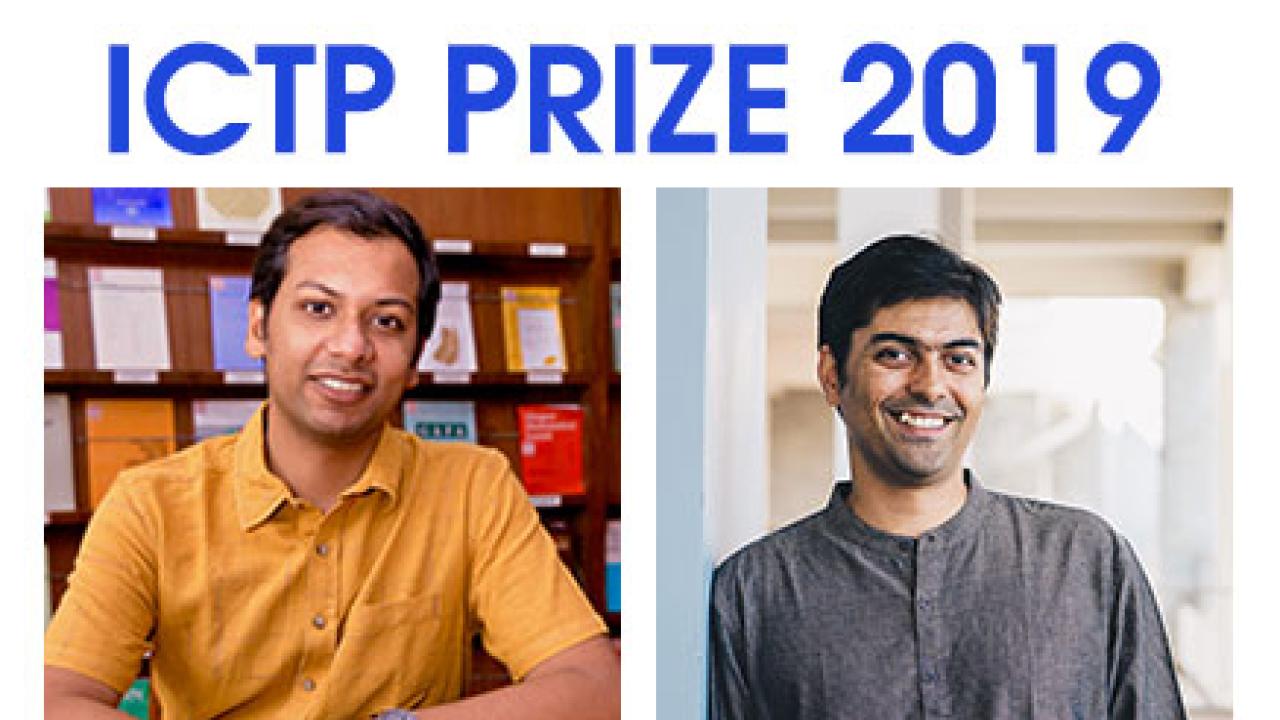
Two theoretical physicists from India will share the 2019 ICTP Prize for their work in high energy physics: Basudeb Dasgupta, of the Tata Institute of Fundamental Research, Mumbai, India, and Suvrat Raju, of the International Centre for Theoretical Sciences, Tata Institute of Fundamental Research, Bengaluru.
Professor Dasgupta was recognised for his innovative theoretical contributions to neutrino and dark-matter physics, especially to the understanding of collective neutrino oscillations. Dasgupta pioneered the field of collective neutrino flavor evolution in extreme astrophysical environments, such as those in supernovae, which helped the understanding of these spectacular and phenomenologically rich events. His works on dark matter, the dominant but yet unidentified component of matter in the Universe, produced crucial input for the interpretation of ongoing direct search experiments. His new ideas on the subject improved our understanding of the possible nature and properties of this obscure form of matter.
Professor Raju was cited for his new insights into the holographic description of black-hole interiors, for clarifying the nature of subtle non-local effects in quantum gravity, and for contributions to the study of the AdS/CFT correspondence. His works on black holes provided a deeper and more detailed description of how the intrinsic non-locality of gravity could preserve unitarity during the black-hole evaporation process, shedding new light on the long-standing black-hole information paradox. He also helped to develop a new set of tools and concepts that extend to conformal field theories, holographic correspondence, quantum error corrections, and algebraic quantum field theory.
The ICTP Prize will be given to Dasgupta and Raju at a ceremony to be held at ICTP in April 2020 during the Spring School on Superstring Theory and Related Topics.
The ICTP Prize was created in 1982. It recognizes young scientists (under 40) from developing countries who work and live in those countries and who have made outstanding and original contributions to physics. The prize includes a sculpture, certificate and a cash award. For further details, see the ICTP Prize webpage.
Each year, the ICTP Prize is given in honour of a scientist who has made outstanding contributions to the field in which the prize is given. The 2019 ICTP Prize is given in honour of Subrahmanyan Chandrasekhar. Born on 19 October 1910 in Lahore, Punjab, British India, Chandrasekhar is one of the most renowned and prolific Indian scientists. He worked on a great variety of subjects, making groundbreaking discoveries in different fields. He was awarded the 1983 Nobel Prize in Physics for "theoretical studies of the physical processes of importance to the structure and evolution of the stars". He died on 21 August 1995.













